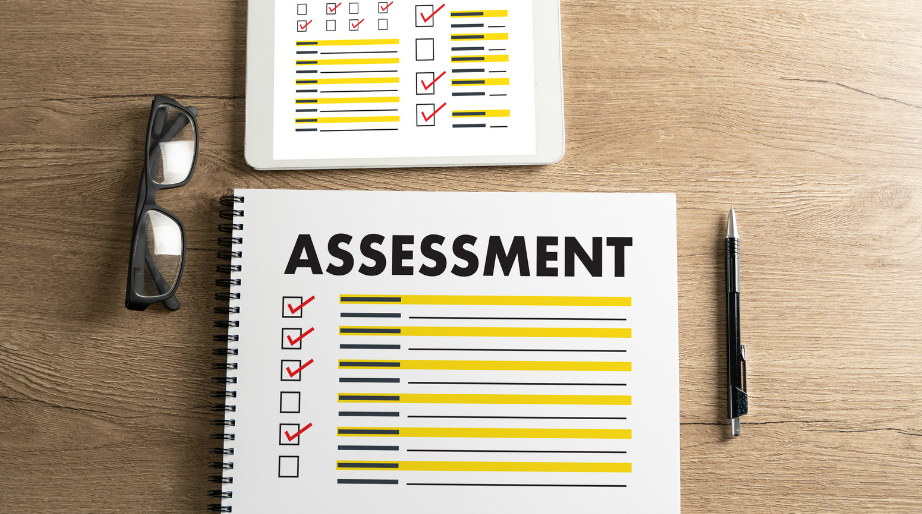Navigating the landscape of mental health can be complex, but understanding the importance of mental health assessments is a crucial step in fostering well-being. In this article, I’ll delve into the significance of mental health assessments, shedding light on their role in identifying and addressing potential concerns early on.
From screening for various mental health conditions to evaluating overall psychological functioning, these assessments play a pivotal role in shaping personalized treatment plans.
Mental Health Assessments
The Purpose of Assessments
 When it comes to mental health assessments, the primary goal is to evaluate an individual’s emotional and psychological well-being systematically. These assessments help in identifying any potential mental health disorders, issues, or conditions that may be affecting a person’s overall mental wellness. By conducting these evaluations, healthcare providers like psychologists, psychiatrists, or counselors can gain valuable insights into a person’s mental state and tailor treatment plans accordingly.
When it comes to mental health assessments, the primary goal is to evaluate an individual’s emotional and psychological well-being systematically. These assessments help in identifying any potential mental health disorders, issues, or conditions that may be affecting a person’s overall mental wellness. By conducting these evaluations, healthcare providers like psychologists, psychiatrists, or counselors can gain valuable insights into a person’s mental state and tailor treatment plans accordingly.
Types of Mental Health Assessments
There are various types of mental health assessments designed to address specific aspects of an individual’s mental well-being. These assessments can range from general screenings to more comprehensive evaluations, depending on the purpose and scope of the assessment. Some common types include diagnostic assessments, psychiatric evaluations, cognitive assessments, and personality assessments. Each type serves a unique function in evaluating different aspects of an individual’s mental health, providing valuable information for diagnosis and treatment planning.
Key Components of Effective Mental Health Assessments
Clinical Interviews
In conducting clinical interviews, I analyze a person’s mental health status. It’s a crucial component of mental health assessments as I gather information about the individual’s thoughts, feelings, behaviors, and overall life situation. These interviews provide a direct insight into the person’s mental state, allowing me to assess their needs accurately. By asking targeted questions and actively listening to responses, I can identify potential underlying issues and determine appropriate interventions tailored to the individual’s unique circumstances.
Psychological Testing
 When utilizing psychological testing in mental health assessments, I employ standardized tools to measure various aspects of an individual’s cognitive, emotional, and behavioral functioning. It’s a structured approach that allows me to gather quantitative data to supplement the information obtained from clinical interviews. Through these tests, I can assess cognitive abilities, emotional functioning, personality traits, and potential mental health disorders. By analyzing the results meticulously, I can formulate a comprehensive understanding of the individual’s mental health status, aiding in accurate diagnosis and treatment planning.
When utilizing psychological testing in mental health assessments, I employ standardized tools to measure various aspects of an individual’s cognitive, emotional, and behavioral functioning. It’s a structured approach that allows me to gather quantitative data to supplement the information obtained from clinical interviews. Through these tests, I can assess cognitive abilities, emotional functioning, personality traits, and potential mental health disorders. By analyzing the results meticulously, I can formulate a comprehensive understanding of the individual’s mental health status, aiding in accurate diagnosis and treatment planning.
Behavioral Observations
Incorporating behavioral observations into mental health assessments involves me closely monitoring an individual’s actions, reactions, and interactions in different settings. By observing their behavior in real-time situations, I can gain valuable insights into their emotions, social skills, coping mechanisms, and overall functioning. These observations help me identify patterns, triggers, and areas of concern that may not emerge through self-report measures alone. It allows me to assess the individual’s behavior within the context of their environment, facilitating a more holistic understanding of their mental health needs.
Challenges in Conducting Mental Health Assessments
Cultural Sensitivity
 Ensuring cultural sensitivity in mental health assessments is a critical challenge. It’s vital to recognize and respect diverse cultural beliefs, values, and norms that influence an individual’s mental health. Adapting assessment tools and techniques to be culturally appropriate is essential for accurate evaluations. Without cultural sensitivity, misinterpretations may occur, leading to inaccurate diagnoses and inappropriate treatment recommendations.
Ensuring cultural sensitivity in mental health assessments is a critical challenge. It’s vital to recognize and respect diverse cultural beliefs, values, and norms that influence an individual’s mental health. Adapting assessment tools and techniques to be culturally appropriate is essential for accurate evaluations. Without cultural sensitivity, misinterpretations may occur, leading to inaccurate diagnoses and inappropriate treatment recommendations.
Variability in Symptoms
Managing the variability in symptoms across individuals poses a significant challenge in mental health assessments. Symptoms of mental health conditions can manifest differently from person to person, making it challenging to standardize assessments. While some symptoms may be overt and easily recognizable, others could be subtle or masked, requiring careful observation and nuanced interpretation. Addressing the variability in symptoms demands a comprehensive approach that considers the complexity and diversity of mental health presentations.

